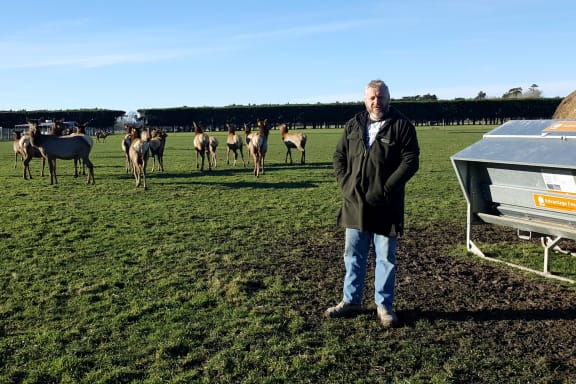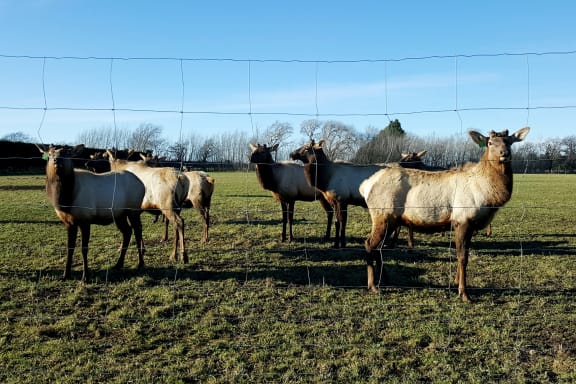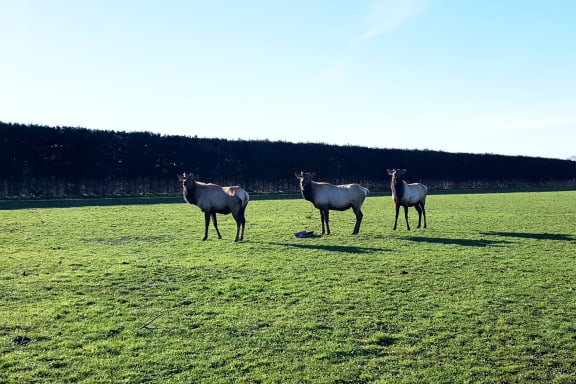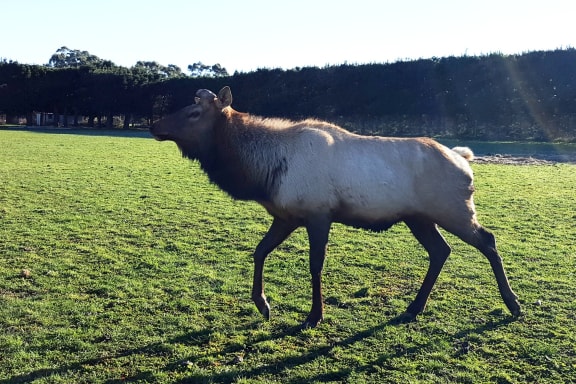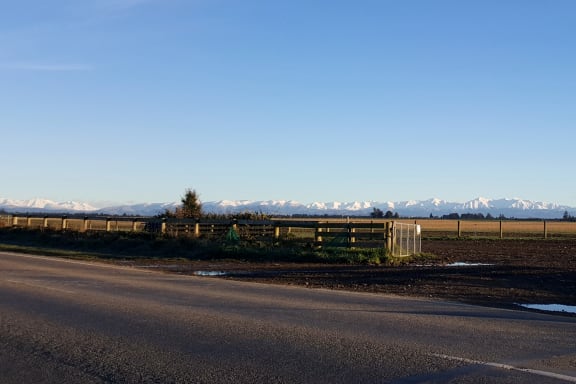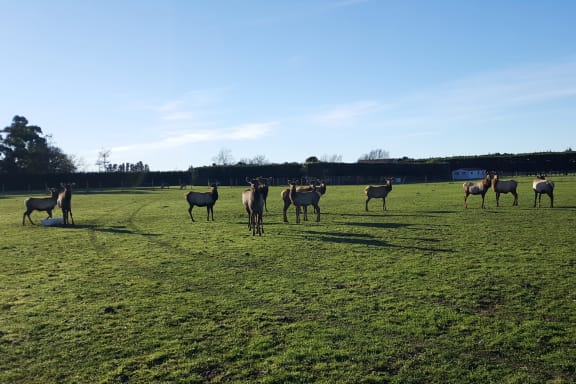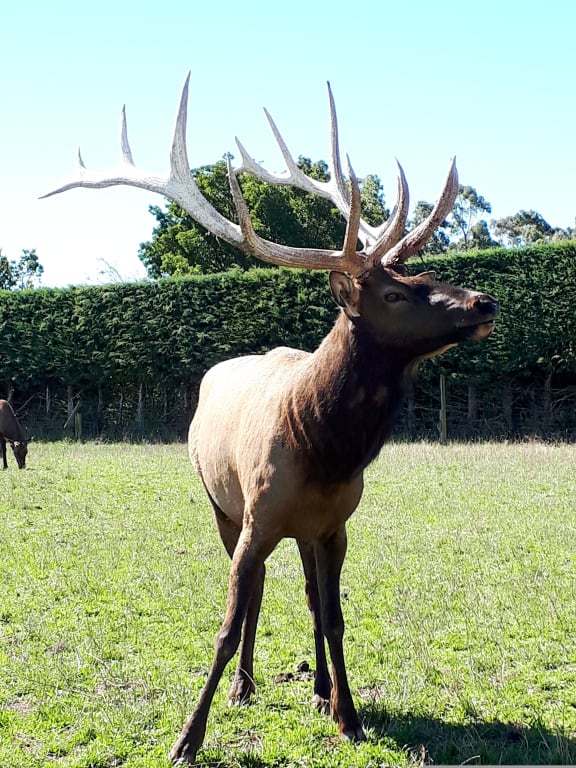Grant Hasse of Hasse Elk Farm in Hororata would rather not send his animals to the works.
The mid-Canterbury farmer is building a niche herd of elk and wapiti and while the venison schedule's good, velvet is currently the biggest income earner.
Elk bulls shed and grow a new set of velvet-covered antlers every year.
For velveting, antlers are cut off during a phase of rapid growth.
If the antler is left to grow to full size, the velvet can no longer be harvested and the antler falls off.
Even though velvet is valuable, it is a by-product, Grant says.
The main reason he removes antlers from some of his bulls is for animal health reasons.
"If you allowed every animal on your farm to grow their antler out (until it's hard), when they come into the roar they are so blinded by testosterone they would end up killing each other."
Grant's long-term goal is to breed animals with perfectly-formed antlers which can be sold for the trophy hunting market instead of going to the works.
"If we were to say an elk bull was worth $1500 on the hook, we might be able to get his retirement value up to $4,500 at that trophy value."
Hasse Elk Farm started in 2009 with a mob of 7 cows and, with a careful breeding programme that's risen to 130.
Grant also works part-time for another elk breeder in Sheffield and inseminates about 12,000 dairy cows a year for a herd improvement and agri-technology co-operative.
